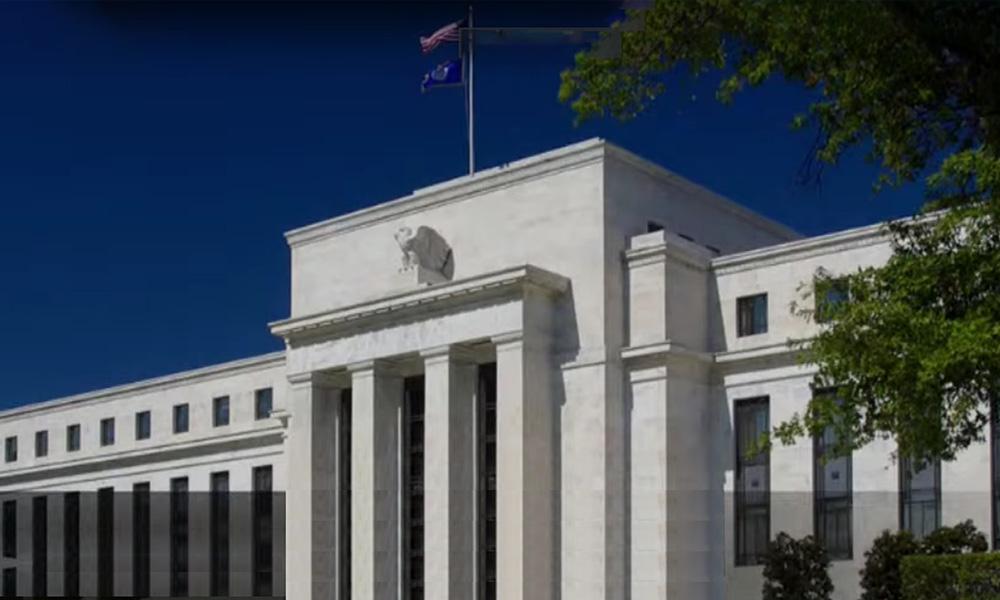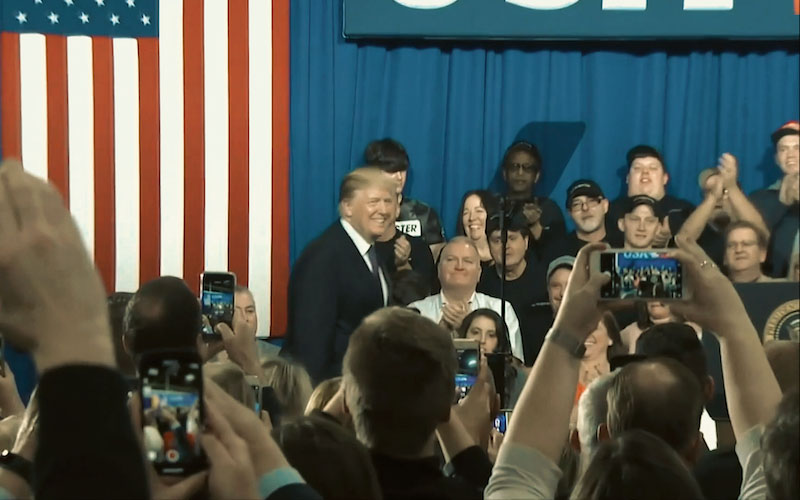Two Kevins compete for Fed chairmanship: Trump's reality show-style selection attracts attention
2025-07-09 14:32:18

Hassett's rise: From behind the scenes to the front
Kevin Hassett, 63, is a bookish PhD in economics with extensive academic background and policy experience. He worked at the Federal Reserve in the 1990s and has become a core figure in Trump's economic advisory team in recent years. During Trump's first term, Hassett served in important positions in the government twice, and then joined the private equity investment company founded by Trump's son-in-law Jared Kushner, accumulating deep political and economic connections.
Hassett's rise has not been smooth sailing. People familiar with the matter revealed that as early as June this year, he made it clear that he had no interest in the position of Federal Reserve Chairman. However, with multiple meetings with Trump, his attitude changed dramatically. It is reported that Hassett had at least two in-depth discussions with Trump and made it clear that he was willing to accept the task if nominated. This change in attitude shows Hassett's keen adaptability to Trump's intuition-he knows how to adjust his position according to the president's preferences.
Even more striking is Hassett's recent public criticism of Jerome Powell, the current chairman of the Federal Reserve. He once made it his mission to "remind people to respect the independence of the Federal Reserve", but now he has become one of Powell's most fierce critics. In a TV interview, Hassett accused Powell of working with Democrats, saying that his decision to cut interest rates was to help Democratic candidate Kamala Harris on the eve of the election. This sharp partisan stance shows that Hassett is trying to consolidate his competitive advantage by catering to Trump's expectations of the Federal Reserve.
Walsh's challenge: the game between elite background and policy transformation
In stark contrast to Hassett is 55-year-old Kevin Walsh, a candidate with considerable influence in the financial circle and the Republican establishment. As the son-in-law of billionaire Ronald Lauder, Walsh not only has elite connections that Trump envies, but is also known for his influence in the global financial community. He served as an adviser to former President George W. Bush and has actively advocated free trade ideas over the past decade. However, Walsh's background and stance may become a disadvantage for him in Trump's circle - Trump is both envious and suspicious of the establishment elites.
Warsh was an early favorite for the Fed chairmanship, having been secretly seeking the position for eight years. However, some of Trump's closest associates worry that Warsh is not part of the president's inner circle and may not fully support the aggressive rate cuts Trump wants. To reverse this disadvantage, Warsh has recently tried to adjust his monetary policy stance. In recent public speeches, he hinted that if the Fed cooperates with Treasury Secretary Scott Bessant to reduce its holdings of about $6.2 trillion in U.S. Treasury bonds and mortgage-backed securities, the Fed will have room to implement more substantial rate cuts. This flexible statement shows that Warsh is trying to cater to Trump while retaining his policy independence.
It is worth mentioning that Walsh's appearance and ability to express himself are also a major advantage. As a candidate with a more "photogenic" temperament, his performance in public may be more attractive to Trump, who pays more attention to his image. In addition, Walsh's long-term friendship with Bessant also won him a certain amount of support.
Trump's reality show selection: A high-stakes power game
The competition between the two Kevins is a microcosm of Trump's political style. Just like the boardroom game he promoted in the reality show "The Apprentice", Trump turned the selection process of the Federal Reserve Chairman into a high-risk power game. He not only publicly expressed his dissatisfaction with the current Chairman Powell, but also explicitly required the next Chairman to support a substantial interest rate cut to match his pro-growth economic agenda. White House spokesman Kush Desai emphasized: "President Trump will continue to nominate the most qualified candidates who can best serve the American people." However, behind this selection, there is more of Trump's challenge to the independence of the Federal Reserve.
Trump's dissatisfaction stems from the Fed's cautious attitude towards inflation. The Fed has made it clear that it wants to ensure that the tariff policy promoted by the Trump administration does not reignite the fire of inflation. Trump hopes to reduce the cost of repaying US debt through faster interest rate cuts, especially since the tax cut bill promoted by his government has exacerbated the fiscal deficit. In this context, Trump even considered announcing Powell's successor in advance to further pressure the Fed.
Bessant's role: the man behind the dilemma
Treasury Secretary Scott Bessant plays a delicate role in this race. As a close ally of Trump, Bessant not only needs to advise on the Fed chairman candidate, but may also be considered by Trump as a candidate himself. People familiar with the matter said that Trump once half-jokingly proposed that Bessant serve as both Treasury Secretary and Fed Chairman, although the seriousness of this idea is unclear. Bessant's position is equally complicated - he publicly supports independent monetary policy, calling it a "jewel box that must be preserved", but recently criticized Powell's cautious attitude, accusing him of misjudging inflation as "transitory" in 2021.
Bessant also suggested that Trump consider current Fed governor Chris Waller or Michelle Bowman as chairman. The two governors appointed by Trump recently expressed their possible support for rate cuts, which diverges from Powell's position. This split may provide Trump with new fodder for criticism and further weaken Powell's influence.
The future of the Federal Reserve: Independence versus political pressure
The competition between the two Kevins is not only a contest of personal ambitions, but also a profound game between the independence of the Federal Reserve and political intervention. The competition between Hassett and Warsh reflects the Trump administration's strong intention to intervene in the Federal Reserve's monetary policy. Whether it is Hassett's partisan criticism or Warsh's adjustment of policy positions, it shows that both candidates are trying to cater to Trump's expectations. However, this catering may pose a threat to the long-term independence of the Federal Reserve.
At the same time, Powell's choice has also attracted much attention. His term as chairman will end in May 2026, but he can choose to remain as a board member until January 2028. This decision may be his last bargaining chip to maintain the independence of the Federal Reserve. Trump's advisers are already exploring the use of the board seat vacated in February 2025 to insert Hassett into the Federal Reserve and pave the way for him to become chairman in the future.
Summary: The clash of power and policy
The competition between the two Kevins has added a touch of drama to the political stage of Washington. Hassett has gradually become the leader by virtue of his close relationship with Trump and flexible policy adjustments, while Walsh is trying to gain opportunities with his elite background and policy transformation. Under Trump's reality show-style selection, this competition is not only about personal destiny, but will also have a profound impact on the future direction of the Federal Reserve.
- Risk Warning and Disclaimer
- The market involves risk, and trading may not be suitable for all investors. This article is for reference only and does not constitute personal investment advice, nor does it take into account certain users’ specific investment objectives, financial situation, or other needs. Any investment decisions made based on this information are at your own risk.










